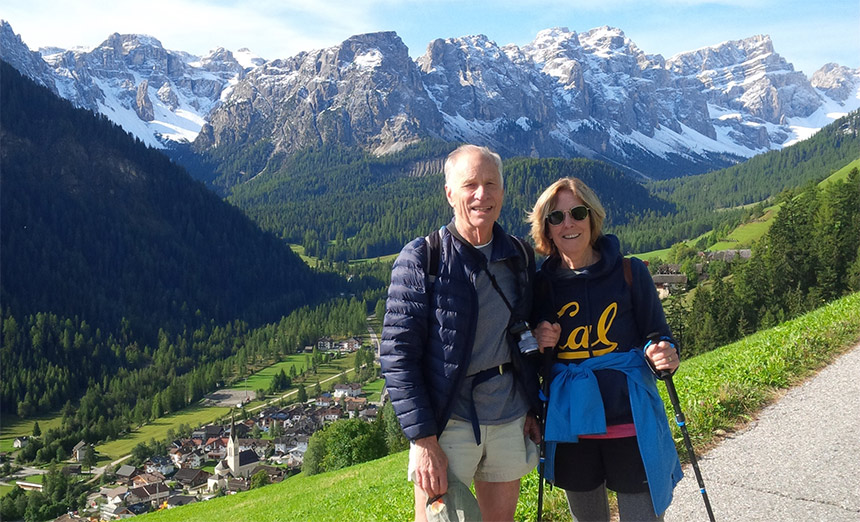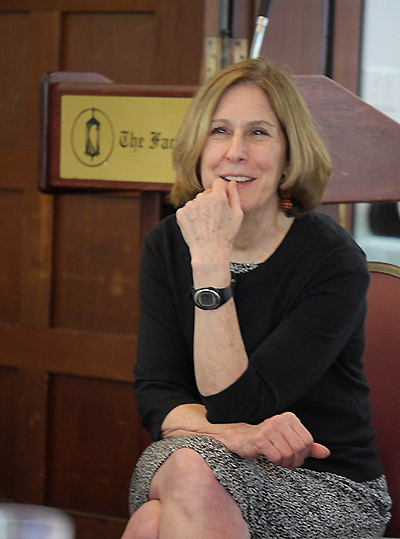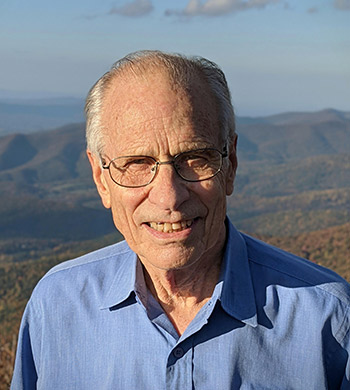
By Andrew Cohen
Ruth Greenspan Bell ’67 and her husband Joseph Bell are widely respected lawyers known for confronting urgent issues innovatively and strategically. They recently used the same approach to guide a major gift to two Berkeley Law research centers.
The five-year, $500,000 pledge creates three new funds for the school’s Center for Law, Energy & the Environment (CLEE) and its Thelton E. Henderson Center for Social Justice: One for scholarships, one for CLEE scholars programming, and one for Henderson Center scholars programming.

“When I graduated and went to live on the East Coast, never again to be a California taxpayer, I thought that making a voluntary contribution to the law school was a way of making up for not indirectly contributing through state taxes,” Ruth says. “It seemed fair because I paid virtually nothing for my state-supported, top-notch legal education. The habit continued. The current contribution is very straightforward, combining our beliefs about equitable access to education, the need to level up social justice, and our concerns about the climate and environmental health of the planet that our children and grandchildren must inhabit.”
A pivotal part of Berkeley Law’s top-ranked environmental law program, CLEE channels the expertise of faculty, staff, and students into pragmatic, creative policy solutions to vital challenges. Focusing on climate and energy, clean water, oceans, and land use, the Center has become increasingly influential with California policymakers, emerging as a go-to hub for research and analysis on pressing state challenges.
“Students are the backbone of our environmental law program,” says Professor Daniel Farber, CLEE’s faculty director. “This generous gift will allow Berkeley to continue its tradition of attracting the very best environmental law students in the country. It will give those students with much-needed financial support, as well as helping us provide mentorship opportunities, informal events in which to connect with faculty, and one-on-one career guidance.”
The Henderson Center trains students to become effective, lifelong social justice advocates, connecting them with professors, lawyers, activists, and others and across and beyond campus to unravel issues of law, power, equity, subordination, and privilege.
“Every year I witness how the work of the Center uplifts and nourishes our students, especially the ones who come from marginalized, underrepresented, and under-considered backgrounds. A gift like the Bells’ allows us to deepen and widen our reach — to more students, and in more ways, for years to come,” says Henderson Center Executive Director Savala Nolan ’11.
“It’s the kind of gift that can not only transform the three-year experience of law school for our students, but can also transform their experience after law school by enabling them to choose public interest and social justice careers, which don’t always feel financially feasible to students with significant debt but no family wealth to serve as a safety net. The ripple effect of the Bells’ gift is huge.”
Doing the work
A leading voice on environmental issues, Ruth writes extensively about climate change and related issues in top publications. She is a public policy scholar at the Woodrow Wilson International Center for Scholars in Washington, D.C., and most recently, co-led a program that uses insights from behavioral social science research to motivate various behavior changes to reduce greenhouse gas emissions.
Previously, she directed the World Resources Institute’s U.S. Climate Policy Objective as well as the International Institutional Development and Environmental Assistance program at Resources for the Future. The latter post helped build better systems of global environmental protection, including a study of decisions made by the Supreme Court of India that led to air quality improvements in Delhi by mandating the switch of all commercial vehicles from petrol and diesel to compressed natural gas.
“The last couple of decades I’ve been in the think-tank world,” says Ruth, who also once held domestic management positions in the U.S. Environmental Protection Agency’s Office of General Counsel. “I’ve focused first on the capacity of countries in the former Soviet bloc and then in major parts of the developing world to actually administer and make real their formal environmental commitments, domestic and international.

“This concern inevitably became about their climate commitments, much of my work challenging conventional wisdom in the climate policy/governance world. CLEE and the Henderson Center are Berkeley Law’s vehicles for addressing those issues and training up a new generation, so supporting them makes perfect sense.”
Joe, a Yale Law graduate who spent his 2L year at Berkeley Law, is pro bono senior counsel at Hogan Lovells in Washington. Formerly chair of the International Senior Lawyers Project, he is also on the board of the Polish-American Freedom Foundation and co-chairs the advisory board of the Natural Resources Governance Institute. His recent work has focused on the role of natural resources in development.
“Natural resources in poor countries can fund development, but the benefits are often lost because of weak contracts, bad policies, or poor governance,” Joe says. “My work with governments including training, policy and negotiation support is intended to help overcome those problems and to assist citizens of those countries, some of the poorest in the world, to better realize the benefit of their resource endowments.”
Multi-level commitment
Since the Bells attended law school, tuition has risen sharply while state support of higher education in California has declined steadily. That duality — and the challenges it presents for Berkeley Law to sustain its excellence and remain fully accessible to qualified students from all economic backgrounds — resonated strongly during the many years Ruth and Joe hosted the school’s annual reception for admitted students from the Washington area.
During these gatherings, they saw how law school costs were a major factor in many of the students’ decisions, and that Berkeley was competing in the financial aid realm with schools with huge endowments and resources. In the end, financial considerations often trumped applicants’ love for Berkeley Law and what it offered them.
“We’re both acutely aware that state support for the law school has dropped down to about 5%, even as Berkeley has made the commitment to maintain the culture of a public law school and be in the forefront of legal education,” Joe says. “Although its resources are limited and Berkeley grads are only beginning to recognize their philanthropic need to step up and support the school, the law school has increased its diversity and the related financial commitment. We admired and wanted to be part of that.”
Ruth says she and Joe relished the opportunity to host the annual D.C. reception, and to help showcase the school’s unique and collaborative culture.
“It was great fun,” Ruth says. “Having an informal gathering in a private home (versus a corporate law firm) provided a signal that Berkeley was not your conventional law school. Many candidates with offers from a variety of law schools made their minds up in favor of Berkeley Law in our living room.”
As for their latest gift, the Bells say the work done by CLEE and the Henderson Center carries added importance given the growing urgency of climate challenges, the ever-widening income gap, and the jarring expansion of social justice crises.
“These are two of the major challenges of our age — to make good on the promise of our democracy so that everyone, not just a privileged few, have a voice; and to figure out ways to manage human existence where we’ve done such damage to the natural environment,” Ruth says. “The answers necessarily must be through law.”